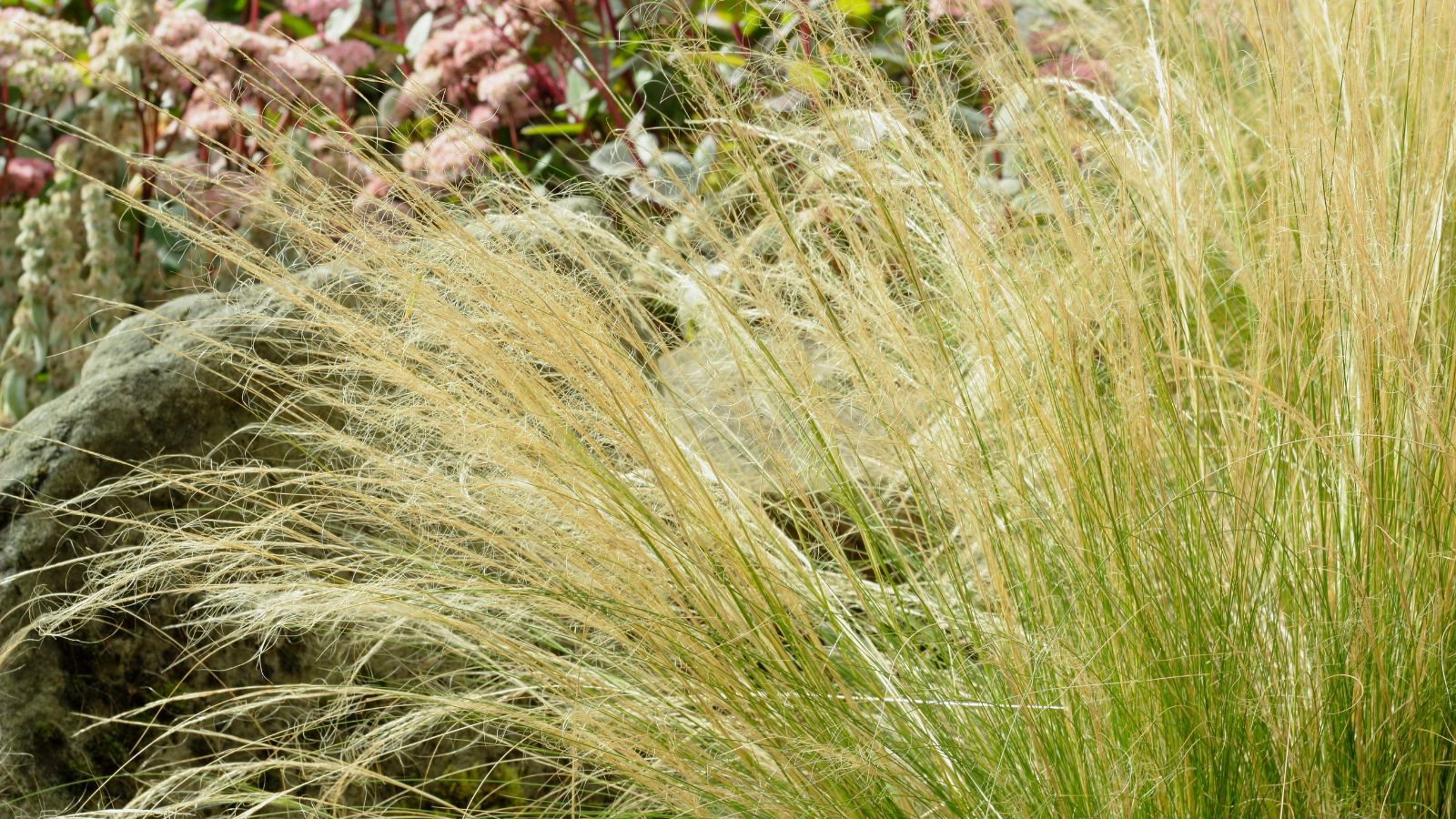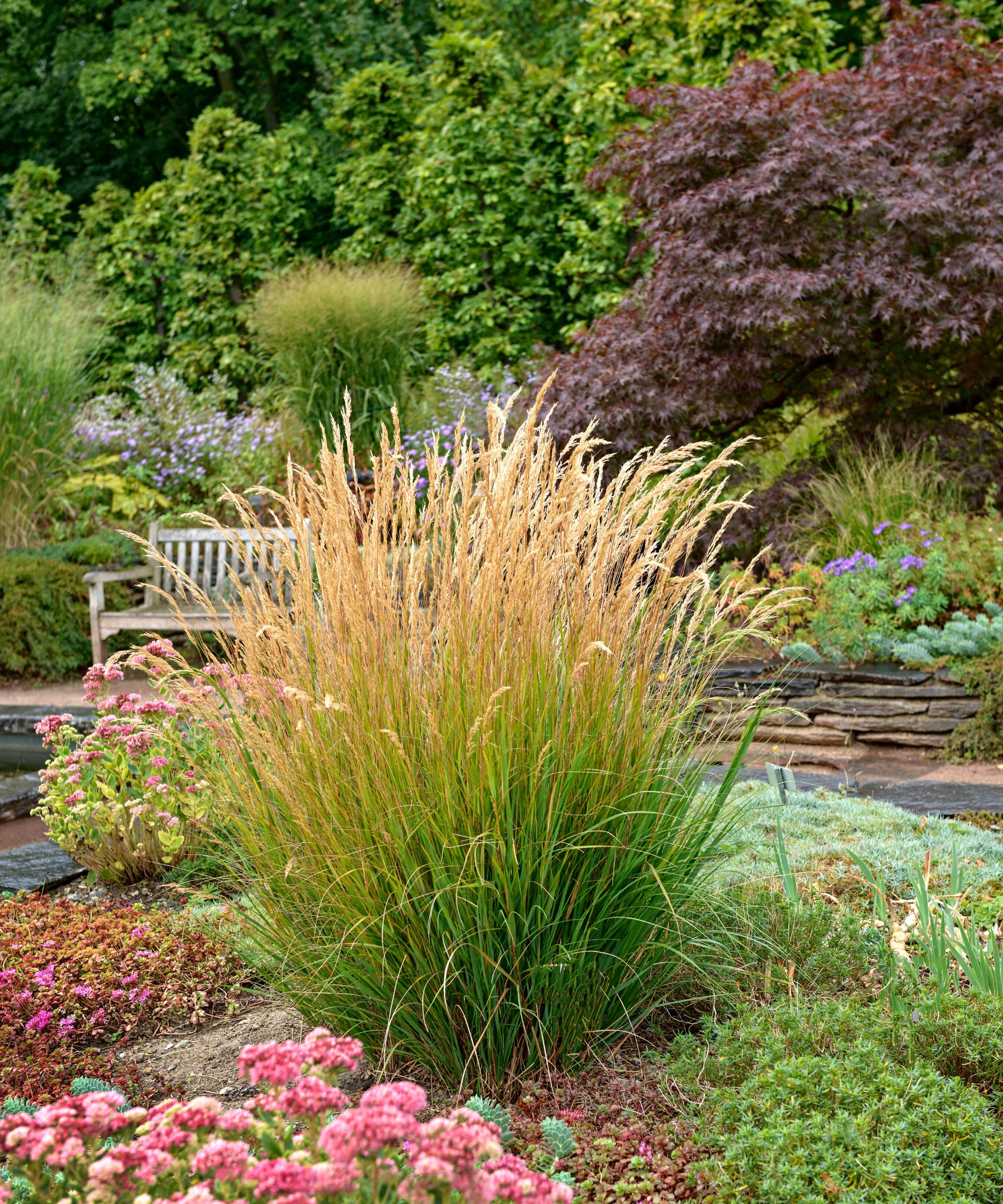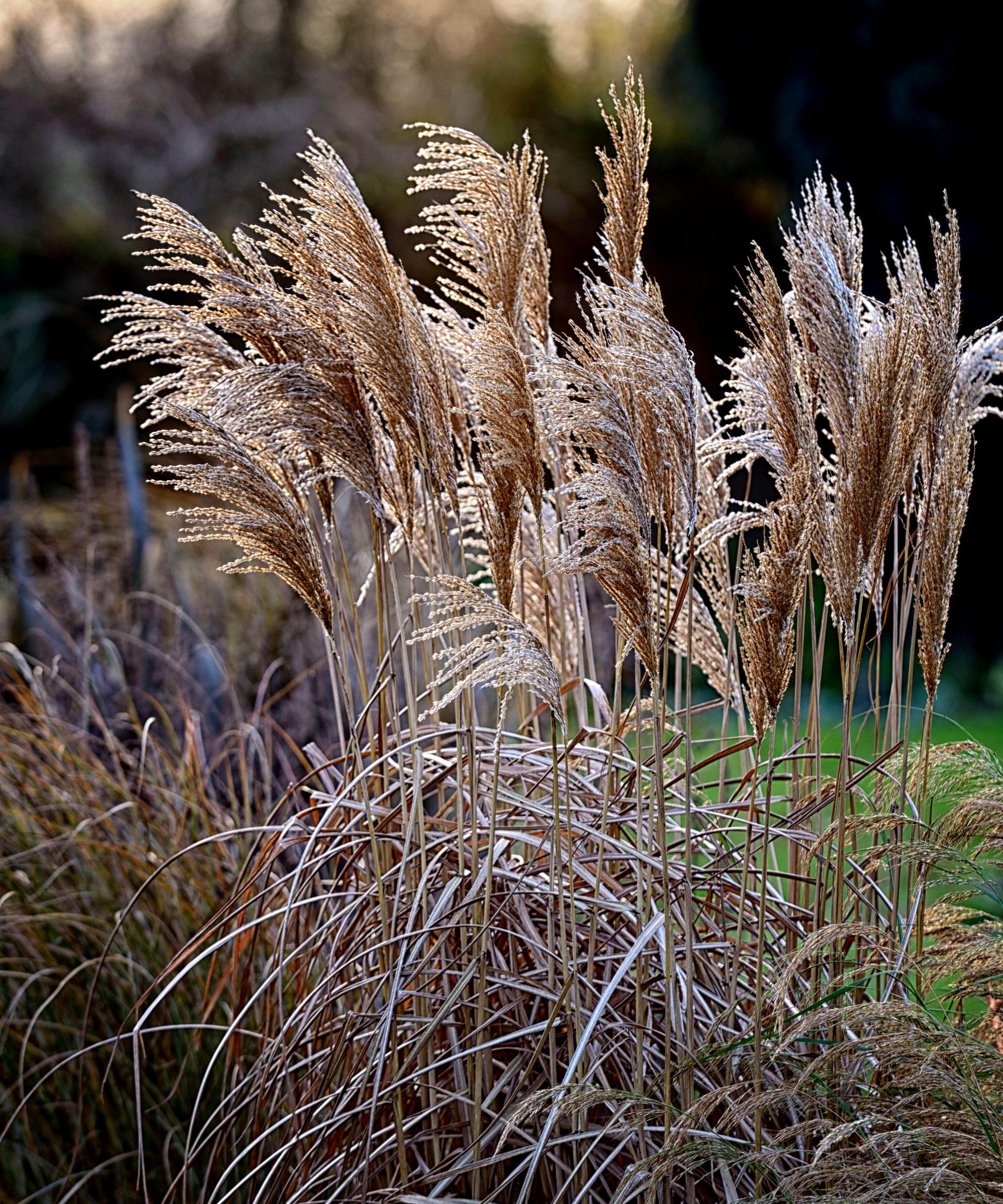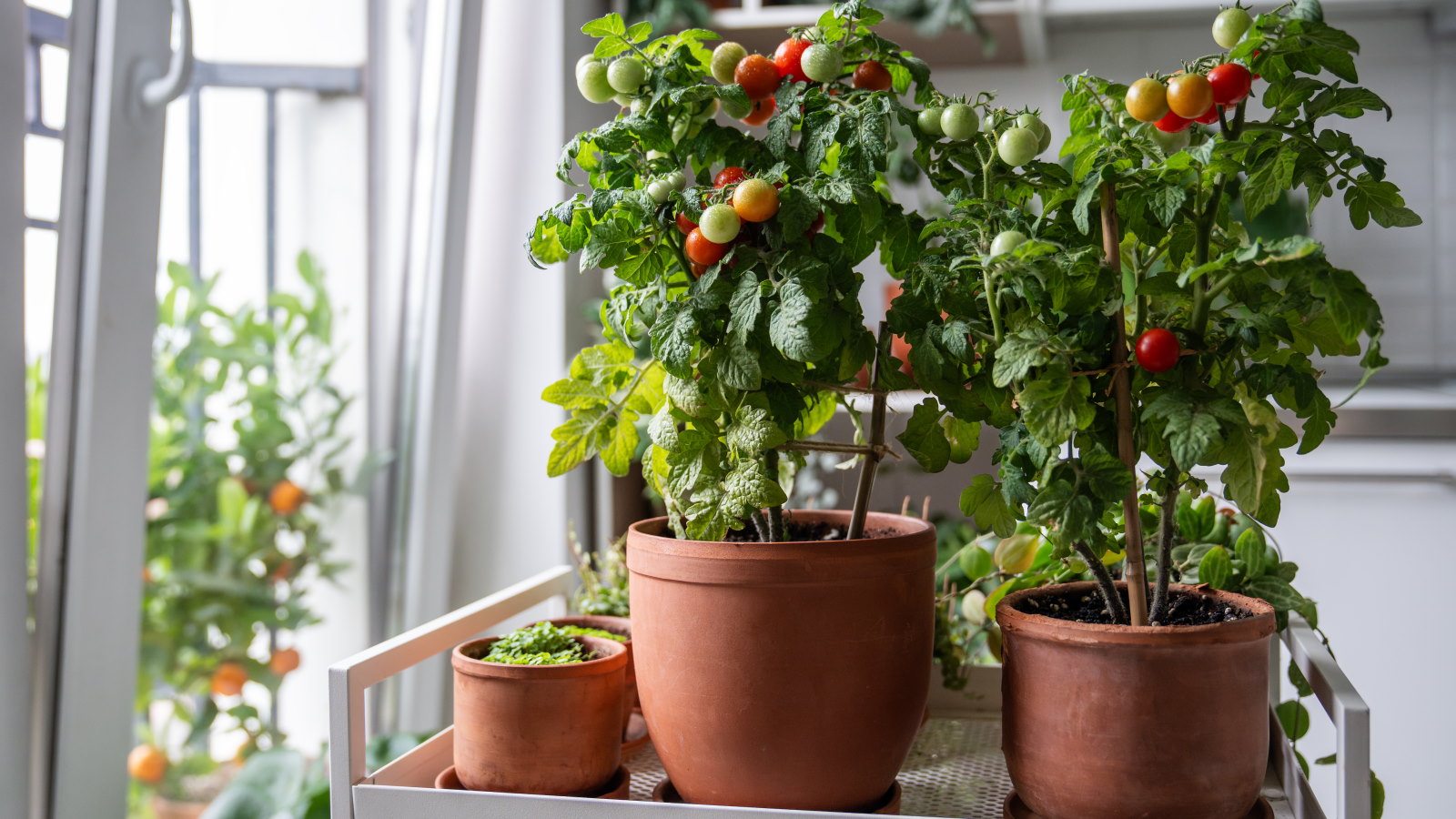When to cut back ornamental grasses – to keep your garden in check
Both deciduous and evergreen grasses need cutting back each fall, but how much depends on the type


Ornamental grasses make spectacular garden additions, adding variety and height to any garden as they blow beautifully in the wind. As the end of the year approaches, however, it is worth knowing when to cut back ornamental grasses so these plants do not come to dominate your garden space.
If you already know how to grow ornamental grasses, then you will be aware that these bushy plants can quickly become too big to manage effectively as they fill space in your garden ideas.
Here, we look at when to cut back ornamental grasses so that you can keep on top of these otherwise low-maintenance plants and keep your garden neat and tidy.
When to cut back ornamental grasses

'While it is typical to start cutting plants back in the fall, ornamental grasses are best left until the following spring before cutting back,' says Rachel Crow, garden editor for Homes & Gardens. 'Ornamental grasses can be left in place to add interest to your fall garden and winter garden ideas as most other plants die away.'
Leaving ornamental grasses intact over the winter period also provides benefits for local wildlife as the stems provide a great food source for birds in an otherwise barren season as well as maintaining your garden privacy as a garden screening idea.
What's more, with spring being the best time to plant pampas grass, this period is a busy time for ornamental grass care, so lumping all of your grass care into one period will make the process more efficient.
'It is important to cut back or divide your ornamental grasses at least once per year before new shoots begin to emerge as these are some of the best fast-growing plants,' Rachel adds. 'You will know when to cut back your deciduous grasses as the center dies away to make space for new growth. Leaving your cutting too late may result in you accidentally cutting away the new stems before they have the chance to establish themselves, stunting your plant's growth for that year.'
If you have evergreen ornamental grass in your garden, then you will likely only need to prune your plant as opposed to fully cutting it back. 'Simply trim away dying parts of the plant with shears and leave the rest of the plant alone,' Rachel advises.
How to cut back ornamental grasses

How you cut back your ornamental grasses will depend on the variety you own. 'Deciduous grasses that turn a papery texture and light brown in color will need cutting back more so than evergreens or grasses that lose their leaves altogether,' says Rachel.
'To cut back ornamental grasses, cut back spend stems with clean secateurs, taking care to not damage new growth that may have already begun to sprout,' she continues. 'Once the bulk of the dead plant matter has been removed, discard it to your compost and continue to shape your plant. Cut remainders of spent stems down to ground level, leaving a large hairy-looking tuft clear for new growth to emerge.'
It is important to remove any debris from the tuft to prevent new growth from being tangled up and remove any weeds. 'You may want to mulch the area around the crown to help feed the plant as it generates new growth into the spring,' Rachel adds.
Do grasses need to be cut back in winter?
While you can cut back grasses in late winter, there are several advantages to leaving these plants in place over the colder months. Not only do these grasses add interest to barren winter gardens as they maintain their shape and often turn a wonderfully festive golden color, but they provide wonderful shelter and food for wildlife, making these plants great additions to wildlife garden ideas.
What happens if you don't cut back ornamental grasses?
If you do not cut back ornamental grasses it is likely that your plant will begin to look untidy and take a poor form, lowering the overall look and appeal of your garden. New growth will become tangled in the old, dead leaves that will eventually begin to rot, damaging your gardens aesthetic appeal.
Sign up to the Homes & Gardens newsletter
Design expertise in your inbox – from inspiring decorating ideas and beautiful celebrity homes to practical gardening advice and shopping round-ups.

Chiana has been at Homes & Gardens for two years and is our resident 'queen' of non-toxic living. She spends most of her time producing content for the Solved section of the website, helping readers get the most out of their homes through clever decluttering, cleaning, and tidying tips. She was named one of Fixr's top home improvement journalists in 2024.
-
 Do cleaning products expire? Professional cleaners warn time could make them ‘less effective, and in some cases, irritating to use’
Do cleaning products expire? Professional cleaners warn time could make them ‘less effective, and in some cases, irritating to use’For the best results, it pays to stay on top of the timeline of your cleaning products
By Chiana Dickson Published
-
 7 of the best tomatoes for growing in pots - expert growers pick their top varieties ideal for large harvests from containers
7 of the best tomatoes for growing in pots - expert growers pick their top varieties ideal for large harvests from containersYou can enjoy bumper homegrown harvests in small spaces
By Drew Swainston Published